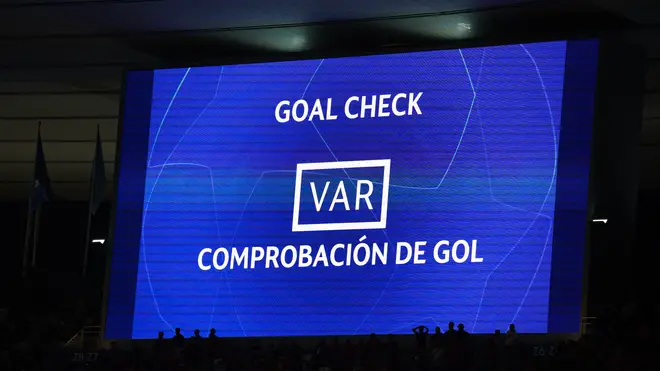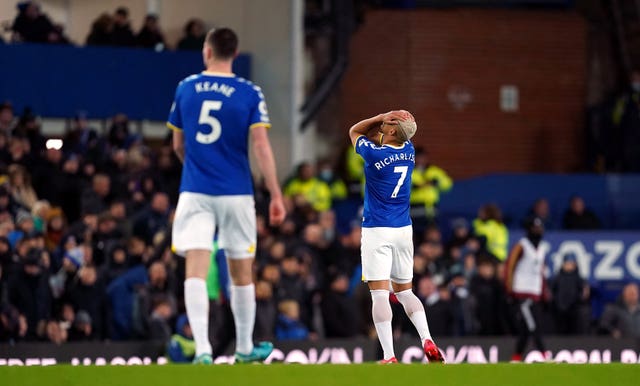
Matt Frei 10am - 12pm
20 July 2022, 13:54

Academics used motion capture technology to assess the accuracy of video assistant referees and suggested why decisions are controversial.
Just 132 milliseconds may explain why offside decisions given in football by video assistant referees have proven so controversial, according to scientists.
Academics used motion capture technology to assess the accuracy of video assistant referees (VAR) and suggested a reason for why football struggles with offside decisions.
The University of Bath study suggested video replays are useful for preventing obvious mistakes but are currently not precise enough to give accurate judgements every time.
The Premier League adopted video replays in 2019 to help referees review decisions for goals, red cards, penalties and offsides.

The technology uses video footage from pitch-side cameras, meaning that VAR operators can view the action from different angles and then offer their judgments on incidents to the referee to make a final decision.
High profile TV pundits like Gary Lineker and Alan Shearer have questioned the accuracy and application of video replays following controversial decisions which can change the course of a game.
Critics further argue the technology hampers the flow of the game but some research suggests it has reduced the number of fouls, offsides and yellow cards.
Dr Pooya Soltani, from the University of Bath, used optical motion capture systems to assess the accuracy of video assistant referee systems.
He filmed a football player receiving the ball from a teammate, viewed from different camera angles, whilst recording the 3D positions of the ball and players using optical motion capture cameras.

Participants viewing the clips were asked to determine the exact moment of the kick and judge whether the ball receiver was in offside.
The study found that, on average, the participants thought the ball was kicked 132 milliseconds later than it actually was, as measured by the optical motion cameras.
It also found that participants were more accurate in their judgments when the action was viewed at 0 and 90 degree angles, and when video assistant referee guiding lines were present.
“VAR is really useful in helping referees make accurate decisions, but this study has shown it has definite limitations,” Dr Soltani said.
“The frame-rate and resolution of the cameras used in VAR sometimes does not keep pace with the fast movements, meaning that sometimes the player or the ball is blurred.
“So, the viewer has to use their own judgment to extrapolate where the players were at the moment the ball was kicked, which affects whether it is offside or not.
“My research found that the ball was kicked 132 milliseconds earlier than the participants perceived, which doesn’t sound like much, but in a fast-paced game it could be long enough for the players to be in a different location and therefore could potentially change the outcomes of offside.
“This goes to show that whilst VAR is useful to spot obvious errors, it shouldn’t be relied upon completely to make referee decisions.”
The study suggested the accuracy of video assistant referees could be improved by using higher frame-rate cameras that would record the movement of the ball in slower motion.
For marginal offside decisions, thicker guiding lines could be used to represent the uncertainty zone and the accuracy could also be improved by viewing the gameplay from multiple angles.
Dr Soltani added: “Using higher resolution, faster frame-rate cameras, and volumetric motion capture approaches would improve the accuracy of VAR, but would be a lot more expensive.
“Whether right or wrong, I think the referee’s final decision adds flavour to the game.”
His findings were presented at 40th conference of the International Society of Biomechanics in Sports (ISBS).